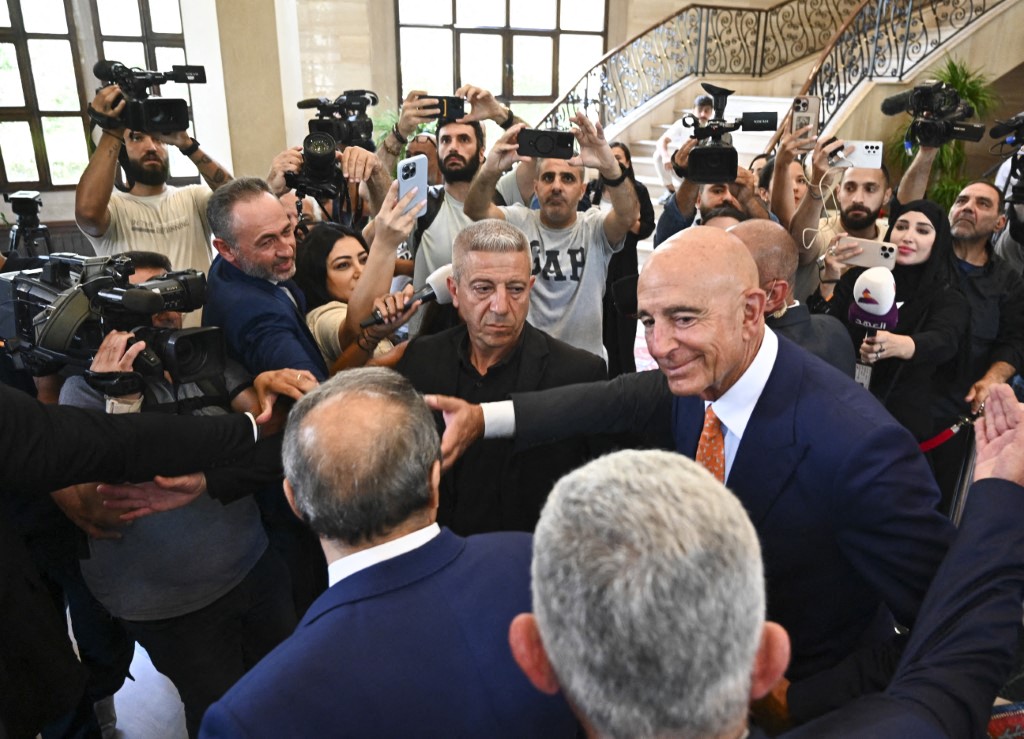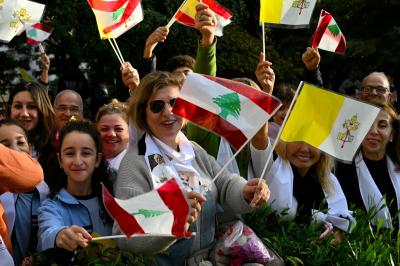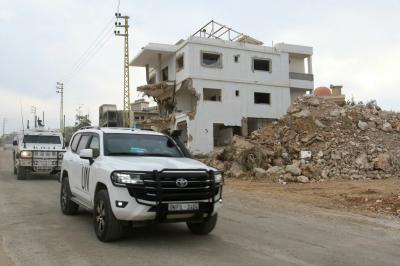The two-day visit of the US-Lebanese presidential envoy Thomas Barrack to Beirut was politically and diplomatically charged with statements and ambiguous declarations. His presence left Lebanon suspended in a heavy, uncertain wait. Officials remain unsure of what lies ahead, and the Lebanese are left guessing an unsure future.
All stakeholders in Barrack’s mission—namely Lebanon’s political leadership, "Hezbollah", and the opposition—interpreted his statements and the 15-point Lebanese response to his proposed roadmap in ways that suit their own narratives and expectations. Yet, all remain on the edge, acutely aware of the subtle but sharp signals he conveyed. In summary:
A. Barrack’s repeated assertion that "Hezbollah"’s weapons are an “internal Lebanese matter” signals a deliberate dissociation of this issue from Iran—both in terms of the ongoing war and potential negotiations. This is in stark contrast to the hopes of "Hezbollah" and Tehran. The message also implies the unraveling of the so-called “unity of fronts” and a move away from the “Axis of Resistance.” It draws a line between four active fronts: Iran, Yemen, Gaza, and Lebanon, extending even to Iraq.
B. Barrack’s dual characterization of "Hezbollah"—first as a Lebanese political party, then as a terrorist organization—suggests two possible approaches: either peacefully disarm the group and integrate it into the political mainstream, as advocated by the country’s three-headed leadership (Baabda, Ain el-Tineh, and the Grand Serail), or treat it like other terrorist entities such as ISIS, potentially resorting to military action. Talk of a looming Israeli military operation—echoed in media outlets and reflected in "Hezbollah"’s apparent evacuations—falls under this lens.
C. His comment that there is no set timeline for disarmament, paired with a warning that President Trump is “running out of patience,” sends a double-edged message to both the Lebanese state and "Hezbollah": this window of opportunity is finite. Most observers, diplomats, and analysts now see a firm deadline—three months from now, or by October.
D. Despite receiving Lebanon’s official response, Barrack did not indicate any changes to the schedule laid out in his original roadmap. At the heart of this plan is a synchronized sequence of steps: Israel ends its strikes while "Hezbollah" begins to disarm. But "Hezbollah"’s calendar is quite different—it insists on halting Israeli air raids, implementing withdrawals, releasing prisoners, and launching reconstruction before discussing a "defense strategy" that would effectively preserve its arms in another form.
E. Barrack’s silence on the guarantees "Hezbollah" demands hints at a clear priority: disarmament comes first, along with an Israeli withdrawal. Guarantees—if any—will come later and will be provided to the Lebanese state, not to "Hezbollah", once the group is absorbed into national institutions like all other political and military actors.
The tremors of Barrack’s visit are now being felt in Washington, Tel Aviv, and Beirut. The U.S. is reviewing Lebanon’s reply to decide when Barrack should return—and what his final message should be. Israel, meanwhile, is weighing further airstrikes against the possibility of a truce during this limbo. In Lebanon, the political trio appears aligned, but "Hezbollah"’s ambiguity casts a long shadow over the next step.
"Hezbollah"’s double posture—publicly standing behind the state while clinging to its weapons—risks paralyzing the tripartite leadership and derailing the U.S. initiative. If Washington walks away, as Barrack has warned, Lebanon could be left to its fate. And that fate, under the shadow of "Hezbollah"’s military adventurism, would be grimmer than its current collapse. The Israeli strikes expanding from the south into the Bekaa and north are only a foretaste of what could come.
Suppose "Hezbollah"’s 2006 “support war” was launched at the peak of its power. What could its next war look like amid four stark changes: diminished capabilities, the loss of its political and popular majority, frayed relations with Syria, and an Israeli decision to eliminate its arms? Meanwhile, Iran finds itself in a tight spot—between intense negotiations and the looming threat of renewed war.
As for the recent optimism voiced by Maronite Patriarch Bechara al-Rahi at Baabda—that “Lebanon is not abandoned”—it can only hold true if Lebanon does not abandon itself. The burden now lies on its leaders to act with courage, clarity, and vision.
Isn’t that precisely what Barrack meant with his final warning before leaving Beirut:
“No one will be negotiating with Lebanon next year. If you’re not ready for change, just tell us now.”
Please post your comments on:
[email protected]
 Politics
Politics













